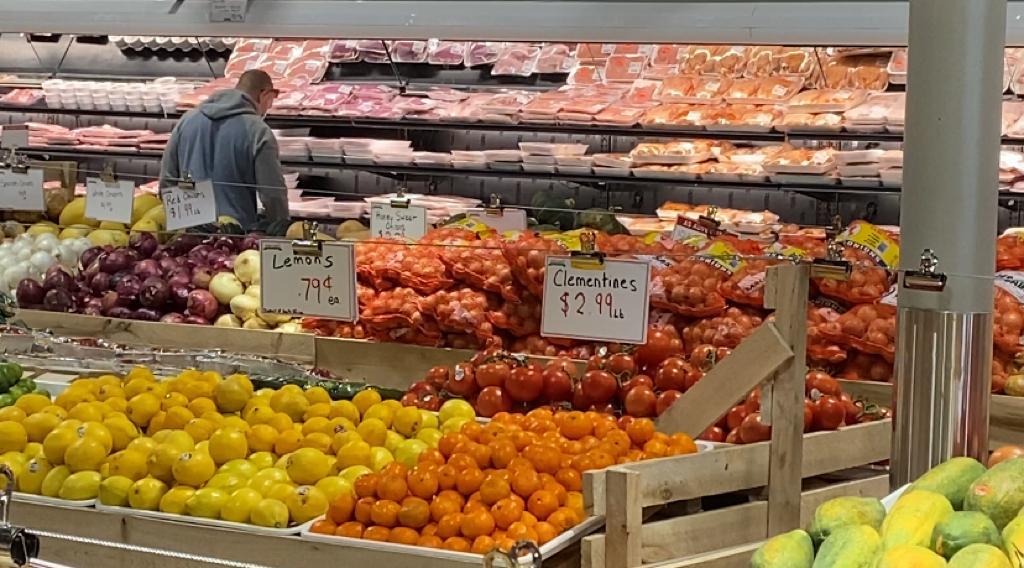Halifax professor says consumers turning to plant-based diets during pandemic
Beef is a 'premium product,' and prices have gone up

caption
A shopper is presented with meat and vegan choices at Mercato Fresh in Chatham, Ont.The number of Canadians eating plant-based food is likely to grow — a trend that should be embraced, says a researcher in Halifax.
Dalhousie University’s Agri-Food Analytics Lab surveyed Canadians in July on eating trends. The lab’s director, Sylvain Charlebois, said in a July 24 opinion piece published in the Kindersley Clarion that the rate of vegan diets increased by 0.7 per cent from his lab’s pre-pandemic survey results in February. He said there are almost 600,000 Canadians who consider themselves vegan now, adding this is the “highest measured rate in three years.”
In an interview with The Signal, Charlebois described the vegan population in Canada as a growing, influential group. He said many meat eaters today actively try vegan food because of changing perspectives on animal proteins.
“People will make different choices for different reasons, whether it’s religious, social, environmental or ethical reasons,” Charlebois said.
Charlebois said the “non-animal protein movement” is popular in Canada. He also emphasized many Canadians, including immigrants, find it financially challenging to buy expensive animal protein. He noted beef prices increased by 25 per cent this year.
“Beef is a premium product. It’s not accessible to a lot of people,” Charlebois said. “With lentils or pulses, you democratize the meat counter, you make it more accessible to more people.”
Charlebois also said animal production will be challenged by an increasing demand for nourishment as more immigrants come to Canada. He believes plant-based proteins can fulfil that demand and potentially bridge the gap.
One butcher in southwestern Ontario is benefitting from the increased number of customers turning to plant-based protein. Marc Romualdi offers vegan options in his new store Mercato Fresh in Chatham, Ont. He has been selling meat for 15 years at his other store, M.R. Meat Market in Windsor, Ont. He opened the Chatham store just weeks before the COVID-19 pandemic and meat price spike.
“Beef prices started to skyrocket, then pork, then poultry. It went that exact order,” Romualdi said.

caption
Assistant store manager Emma Holleran (left) and on-premise chef Maria Tape (right) check products at Mercato Fresh.The U.S. Bureau of Labor Statistics reported more than a 20 per cent increase in beef prices for American consumers from March to June 2020, a spike contributing to a 10 per cent increase in the Consumer Price Index (CPI) in the U.S. for meats, poultry, fish and egg over the same period.
M.R. Meat Market’s general manager, Patricia Baillargeon, explained that meat shortages were due to the closure of several meat processing plants during COVID-19.
The Canadian Cattlemen’s Association recorded a 3.2 per cent decrease in beef production for the year to July 4, 2020, compared with the same period last year.
“We developed the store so there’s something for everybody,” Romualdi said. “Vegan diets and lifestyles have ever been growing so we want to accommodate those people best as possible.”
Charlebois said although traditional butchers serve a loyal clientele, it’s important for them to recognize growing trends and diversify their products to meet a varying food demand.
Charlebois said that while the prices of plant-based proteins were high when the vegan movement started growing in Canada, it’s “good news” now because prices are becoming cheaper, making plant-based proteins more attractive than animal proteins for a greater number of people.

